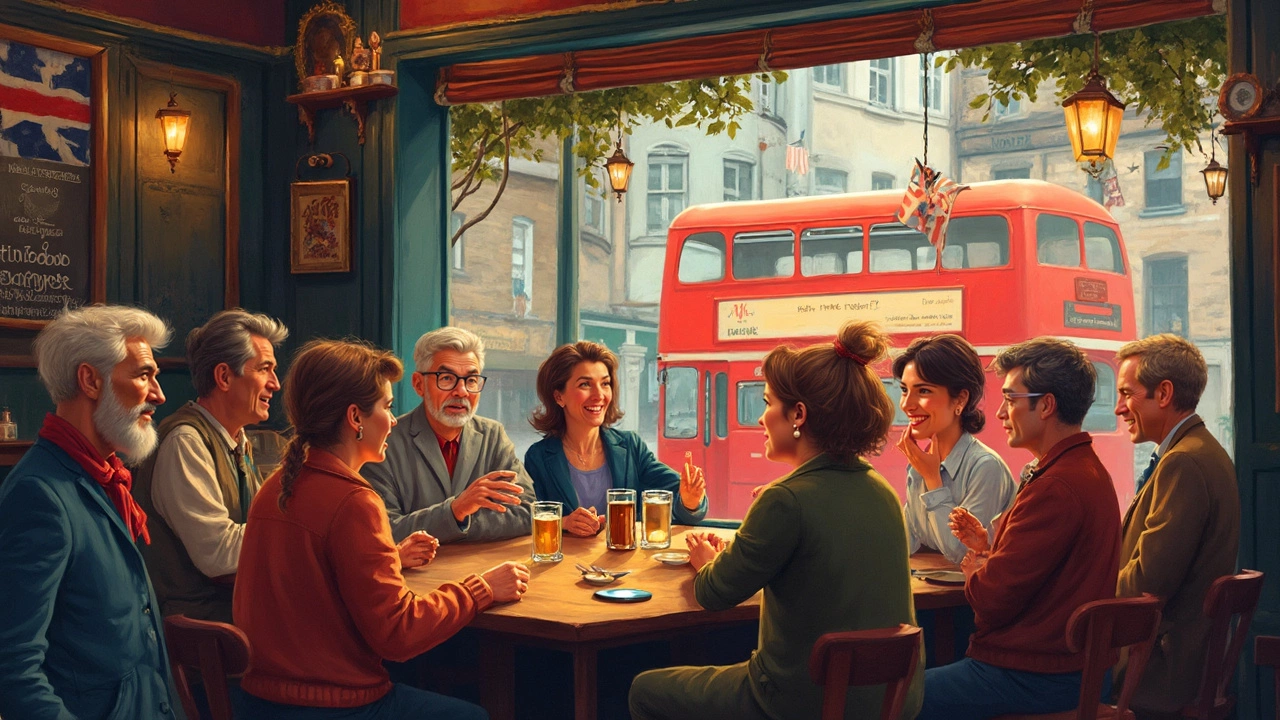British English: What Every Traveller Should Know
If you’re heading to the United Kingdom, a quick brush‑up on British English can save you a lot of awkward moments. It isn’t a whole new language, but the spelling, some vocabulary, and everyday expressions differ enough from American English that locals notice. Knowing the basics lets you ask for directions, read menus, and chat with locals without constantly pausing to translate.
Key Differences Between British and American English
First up, spelling. Words like colour, centre, and travelling keep the extra "u" and double letters that Americans drop. That means a sign that reads "Theatre" or "Aluminium" might look odd if you’re used to “Theater” or “Aluminum.” Pronunciation also shifts – the “r” at the end of words is softer, so “car” sounds a bit like “cah."
Vocabulary changes are even more noticeable. In the UK, you’ll hear “lorry” instead of “truck,” “boot” for a car’s trunk, and “biscuit” for what Americans call a cookie. When you ask for a “napkin,” you’ll likely get a look – they call it a “serviette.” These swaps are easy to remember if you picture the British version of each item.
British English Tips for Travelers
Start with simple phrases. Saying "Cheers" for thank you, or "Sorry" when you bump into someone, goes a long way. Politeness is prized, so a "please" and "thank you" rarely go ignored. If you need directions, try "Could you point me to the nearest tube station?" instead of “subway.” Locals will appreciate the effort.
Watch the slang. Words like "knackered" (exhausted), "brolly" (umbrella), and "cheers" (thanks) pop up in everyday conversation. You don’t have to use all of them, but dropping in a few can make you sound friendly rather than clueless. If you’re unsure, just ask – most Britons enjoy explaining their lingo.
When reading signs or menus, keep an eye on the British spelling. It helps you spot the right items faster. For instance, a "pastry shop" may be listed under "Patisserie" – a French‑inspired term common in the UK. Knowing these nuances prevents you from missing out on a good cuppa or a tasty scone.
Finally, don’t stress perfection. British folks are used to hearing different accents and appreciate the effort you put into speaking their version of English. A friendly attitude, a few correct spellings, and a willingness to ask questions will make your trip smoother and more enjoyable.

Why Do British People Say Holiday and Not Vacation?
British people say 'holiday' instead of 'vacation' because the word has deep cultural roots in UK life. It's not just language-it's about how they rest, reconnect, and enjoy time at home.

Do British People Really Say “At the Weekend”? A Deep Dive into UK vs US English
Do Brits actually say "at the weekend," and why does it sound so odd to North Americans? This article explores how this small phrase sums up bigger UK vs US English differences, with real-life examples, cultural stories, and practical tips for travelers and language lovers. Learn which phrases to use where, discover surprising similarities, and get confident switching between dialects. Fans of language quirks and British culture will love these enlightening facts and fun tips for sounding local.
